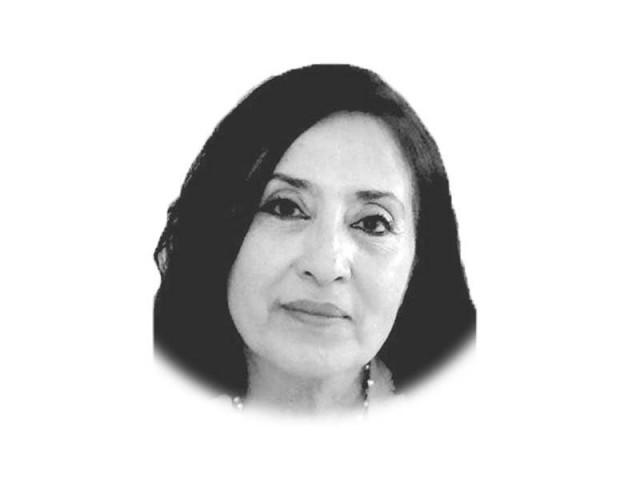Journalism is the first draft of history
“I have loved Pakistan the way no other human being does…two people loved Pakistan as much as I do: Jinnah & Bhutto.."

The writer is a journalist with over 30 years of experience
The sheer expanse and variety Siddiqi packs in his narrative is breathtaking. For a student or an initiated observer of journalism, political science and foreign affairs, this book makes for a prized source of first-hand information. The full sweep of Siddiqi’s career ranges from editorials, over 3,000, to feature stories, scoops and news reporting as an English language newspaper’s Washington correspondent. He’s an all-rounder, employing a heuristic approach to learn, discover and hone journalistic skills encapsulated in his life’s travails. He began as a sub-editor and ended as a Readers’ Editor. His thorough professionalism is reflected on the pages of the book, zeroing in on the tortuous history of Pakistan laced with his crisp comments and wry humour that his friend called “unapologetically subjective”. The author’s ‘subjectivity’ is what sustains the reader’s interest. Enough books on political history of this country lie biting the dust. Siddiqi is shrewd enough to keep the reader entertained with his quips while taking us on an exciting tour of virtual reality in real time! Not every writer has the smarts to interact with his reader by presenting history as though it were live.
Our attention span defined as “the amount of concentrated time on a task without becoming distracted” has shrunk to levels where humans now have a shorter attention span than goldfish! Microsoft’s CEO predicts that in the near future “the true scarce commodity will be human attention!” Given this environment, Barrister Kamal Azfar, a man for all seasons who has worn many hats over the decades, has written a brilliant Foreword for Siddiqi’s book. Azfar has telescoped for the reader its salient features, recommending chapters one and 17. The first captures Karachi’s lost charm and the latter is on “Brother Arabs”. “It is about us Pakistanis’ romantic view of the Arabs … his (Siddiqi’s) thesis is that the Arabs are basically a secular people, they do not appreciate religion as a state’s basis, their historical experience has been vastly different from South Asian Muslims,” writes Azfar. “The Arabs have no concept of pan-Islamism” and that “they are often amused by Pakistanis’ infantile concept of the ummah.” “The reader”, continues Azfar, “may not accept these rather radical views, but I recommend the chapter for reasons of originality.” While Azfar is perhaps being politically correct about our relationship with the Saudis, kudos to Siddiqi for calling a spade a spade.
I asked Siddiqi about his most deeply felt personal experience grounded in one of the chapters of his book. He pointed to chapter three, entitled “Revanche” [revenge]. It is an anguished story of a patriot and a journalist with a wounded heart. It tells us about his wound. As a boy, Siddiqi had to flee his home in Hyderabad Deccan when the Indian Army came in 1948: “I had been roused from bed early in the morning and made to say goodbye to the home which I would never see again,” he writes. He hasn’t forgiven India since then. He wanted revenge for that September 1948 morning; instead he has witnessed only disasters and reverses in South Asia and abroad — Hyderabad, Junagadh, Kashmir, East Pakistan, Kargil, Palestine, Iraq and Bosnia. Still, his unabashed love for Pakistan is an act of faith, the most beautiful and deserving of our admiration for the author: “I have loved Pakistan the way no other human being does … two people loved Pakistan as much as I do: Jinnah and Bhutto. A third has not yet been born.”
While waiting to join his father in Pakistan, Siddiqi’s family sojourned in Aurangabad in 1949 where his mother’s brother lived. “Zaheer [his uncle] had a daughter Razia.” Love blossomed. The rest you read!
Published in The Express Tribune, February 4th, 2016.
Like Opinion & Editorial on Facebook, follow @ETOpEd on Twitter to receive all updates on all our daily pieces.















COMMENTS
Comments are moderated and generally will be posted if they are on-topic and not abusive.
For more information, please see our Comments FAQ